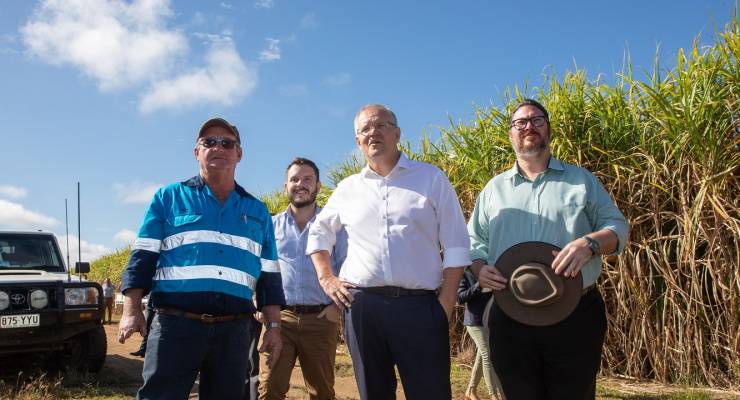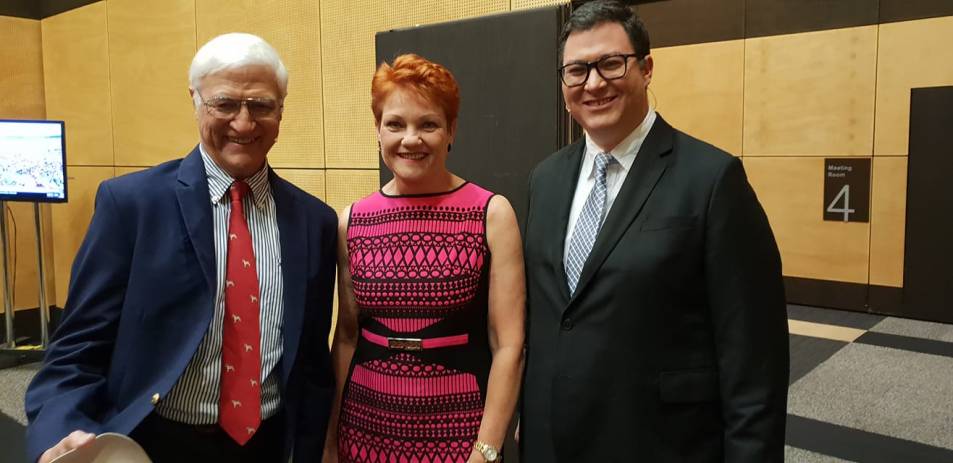
George Christensen’s world is a place inhabited by north Queensland farmers, fishermen, miners and battlers.
While national stories about Christensen often focus on his climate change denial, his attacks on Islam or his conservative stance on social issues like same-sex marriage, locally he is known for going in to bat for sugar cane farmers, or defending fishermen, or securing funding for much-needed infrastructure.
Christensen won his seat of Dawson in last May’s federal election with an 11.2% swing on a two-party-preferred basis, even though his primary vote barely changed at all (it increased by 0.32%). And he was no doubt helped by Labor’s clumsy handling of the Adani mine issue, which saw a 12% swing away from Labor and a 13% swing to One Nation.

Still, the question many columnists, analysts and pundits (most, it must be said, were “southerners”) grappled with in the wash-up of the election was: why anyone would vote for him at all?
To some, the result seemed “baffling”. The Guardian’s Greg Jericho called him “absent and incompetent”, claiming that “nothing about his work (or lack of it) over the past three years warranted his re-election”.
Absent he may have been — but “incompetent” is a harder charge to sustain.
Christensen is a quintessential local member. He reportedly once “took on” the Queensland Health bureaucracy to help a woman dying in a Brisbane hospital return to her home in Bowen, so she could pass surrounded by her husband and two boys.
Stories like that resonate with north Queenslanders who, like many rural or regional Australians, are acutely aware of the disadvantages that increase with distance from the capital cities. They might not agree with all his views — they might even think some of them are downright wacky — but who cares if he can help improve their lot in life?
Political scientist at James Cook University Dr Maxine Newlands believes residents wouldn’t have been fazed by the travel scandals. “Where he spends his time is neither here nor there,” she told Inq. “The stories don’t affect them. Because of the drought and high unemployment, they’re looking for people who are going to bring jobs. He says he’s encouraging jobs and mining … that’s what they see.”

Christensen has said he was working on his phone and computer while away, and “in the age of instantaneous communication … I’ve been talking to constituents, responding to emails, talking to key staff members and getting things done”. Given no one seemed to have noticed the extraordinary amount of time he was spending away until it was revealed in the press, he may well have a point.
His prodigious use of Facebook certainly makes him seem present and active in the electorate. Like most savvy politicians, he uses the platform to speak directly to his constituents, unfiltered by the pesky questions of journalists. On that platform, few of his followers seem to notice that while some measure of hypocrisy is virtually a job requirement for politicians, Christensen has turned it into an art form.
He is a man who can criticise Greens Senator Larissa Waters for closing her “taxpayer-funded office during work hours” to attend a climate strike, with barely anyone reminding him that he was 5000km away from his own taxpayer-funded office for almost 300 days. (When Inq put this to him, he countered that he may have been away, but his office wasn’t closed). He is a man who proclaims to be “standing up for the north”, but missed eight of the 27 public hearings for the Northern Australia committee in 2014 because he was in the Philippines. He is man who calls for a halt to foreign aid, saying “not one dollar should be spent on foreigners”, while spending 10 weeks a year in Southeast Asia raising money for charity groups there.
In Christensen’s world, the Hong Kong protesters are freedom-loving heroes who “have seen how it works essentially under British-style rule of law,” but Australian climate protesters are “dangerous, and stupid, and worthy of the strongest punishment under the law“.
The chutzpah might seem mind-blowing to outsiders, but it’s immaterial to people who feel neglected, and sometimes even attacked, by those who wield power over their lives from thousands of kilometres away.
During the election campaign, Labor tried to use the Philippines story against Christensen. But when a convoy of anti-Adani protesters from the other end of the continent showed up, with demands to stop a project many locals hoped (however falsely) would bring them jobs, questions about his propriety in the Philippines seemed irrelevant.

As Newlands told Inq, “the Bob Brown caravan did him a lot of favours — the caravan played into that ‘southerners coming in taking our jobs’ and not wanting mines narrative … it created a divide, pushed that ‘don’t come here and tell me how to live’ attitude”.
I am from Mackay. I’ve asked numerous people there, from all walks of life, what they think about this whole episode. A startling number were barely aware of it and, of those who were, a widely held opinion — even among people who don’t support him politically — can be summarised in this way:
If he wasn’t breaking any laws, and wasn’t misusing taxpayer money, and was still managing to be an effective local member, then really, who gives a shit?
Got a story or a tip for Inq? Get in touch via our encrypted tips line.








Crikey encourages robust conversations on our website. However, we’re a small team, so sometimes we have to reluctantly turn comments off due to legal risk. Thanks for your understanding and in the meantime, have a read of our moderation guidelines.